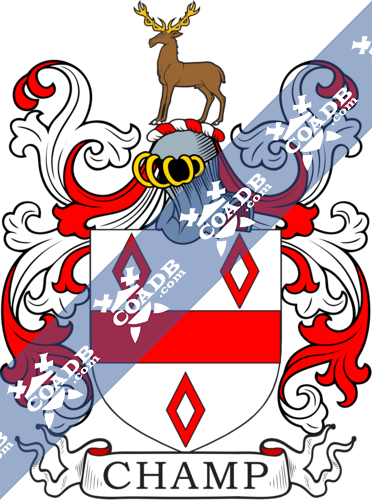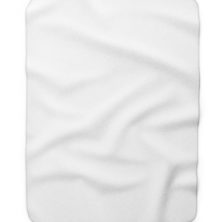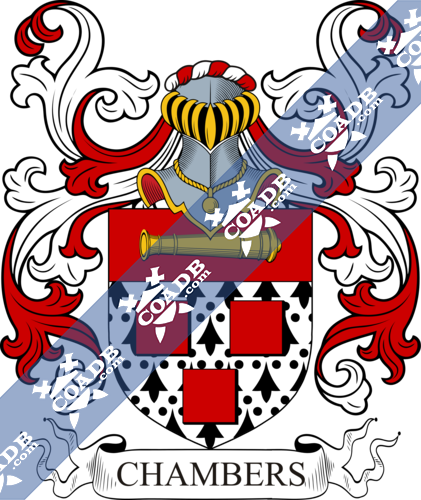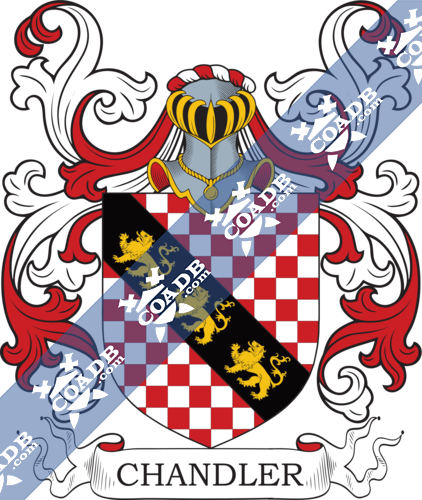Champ Family Crest, Coat of Arms and Name History

Champ Coat of Arms Gallery
Don’t know which Coat of Arms is yours?
We can do a genealogical research. Find out the exact history of your family!
Learn MoreChamp Origin:
England, France
Origins of Champ:
This unique and interesting name is of French origin and is a geographical surname mentioning a person who resided in or near a farmland or a large stretched pasture. The name acquired from the ancient French word “champ,” which means a farmland or pasture, from the Latin word “campus,” large plain stretches of flat land. As a surname, it could also be used by a person who resided in the non-city environment as opposed to a town. The new English name can appear as Camp, Campe, and Champe. There are many European kinds of the name, in French “Delcamp, Dechamp(s)” etc., in Italy, “Campi, Campari,” etc., in Germany “Kampler” and much more. One, Abell Champ married to Thomas Stokes, at St. Katherine’s by the Tower, London, in the February 1634. John Champ, an old traveler to the New World, lived in St. James City, Virginia, earlier to February 1623.
Variations:
More common variations are: Champi, Champe, Champa, Champo, Schamp, Champy, Chaump, Champu, Chamap, Chammp.
England:
The surname Champ first appeared in Yorkshire where they held a family seat from old times and were given estates by Duke William of Normandy, their true King, for their extraordinary service at the war of Hastings in the year 1066 AD.
The very first recorded spelling of the family was shown to be that of Joane Champe, dated about 1581, in the “St. Andrew”, Endfield, London. It was during the time of Queen Elizabeth I, who was known to be the “Good Queen Bess,” dated 1558-1603. The origin of surnames during this period became a necessity with the introduction of personal taxation
Ireland:
Many of the people with surname Champ had moved to Ireland during the 17th century.
United States of America:
Individuals with the surname Champ settled in the United States in three different centuries respectively in the 17th, 18th, and 19th. Some of the people with the name Champ who settled in the United States in the 17th century included John Champ landed in Virginia in 1622. Alice Champ at the age of 20, landed in Barbados in 1635. Robert Champ arrived in Maryland in 1658. William Champ who settled in Maryland in 1659. Stephen Champ, who came to Maryland in 1664.
Some of the people with the surname Champ who settled in the United States in the 18th century included Alexander Grand Champ, who arrived in New York in 1784.
The following century saw many more Champ surnames come. Some of the people with the name Champ who settled in the United States in the 19th century included J. Champ, who settled in San Francisco, California in 1852. Henry Champ, who arrived in Washington Division, Pennsylvania in 1862. Allen Champ landed in Allegany (Allegheny) Division, Pennsylvania in 1874.
New-Zealand:
Some of the people with the surname Champ who settled in New Zealand in the 19th century included James Champ at the age of 34 arrived in Nelson aboard the ship “Mary Ann” in 1842. Elizabeth Champ at the age of 35, arrived in Nelson aboard the ship “Mary Ann” in 1842. Charles Champ at the age of 7, landed in Nelson aboard the ship “Mary Ann” in 1842. Frederic Champ at the age of 20, a worker, arrived in Wellington, New Zealand aboard the ship “La Hogue” in 1874
Here is the population distribution of the last name Champ: Pakistan 3,395; United States 3,296; France 1,102; England 726; Philippines 644; India 331; Sri Lanka 326; Saudi Arabia 308; Canada 304; South Africa 237.
Notable People:
Des Champ (July 1928–June 2006 in London, England) was a singer, manager of a band, director, and a producer.
Des first got chart fame with Vanity Fare, whose “Hitchin’ a Ride” sold over a million in the US alone, but his most remarkable pop success was with glam-rock band Chicory Tip, whose “Son of My Father” recorded with a Moog synthesizer. “Son of My Father” went on to top the UK pop music charts for three weeks in the early part of the year 1972 and was a popular for over 80 years.
Blazons & Genealogy Notes
Notes: None. Blazon: Ar. a fesse betw. three mascles gu. Crest—A stag ppr.







